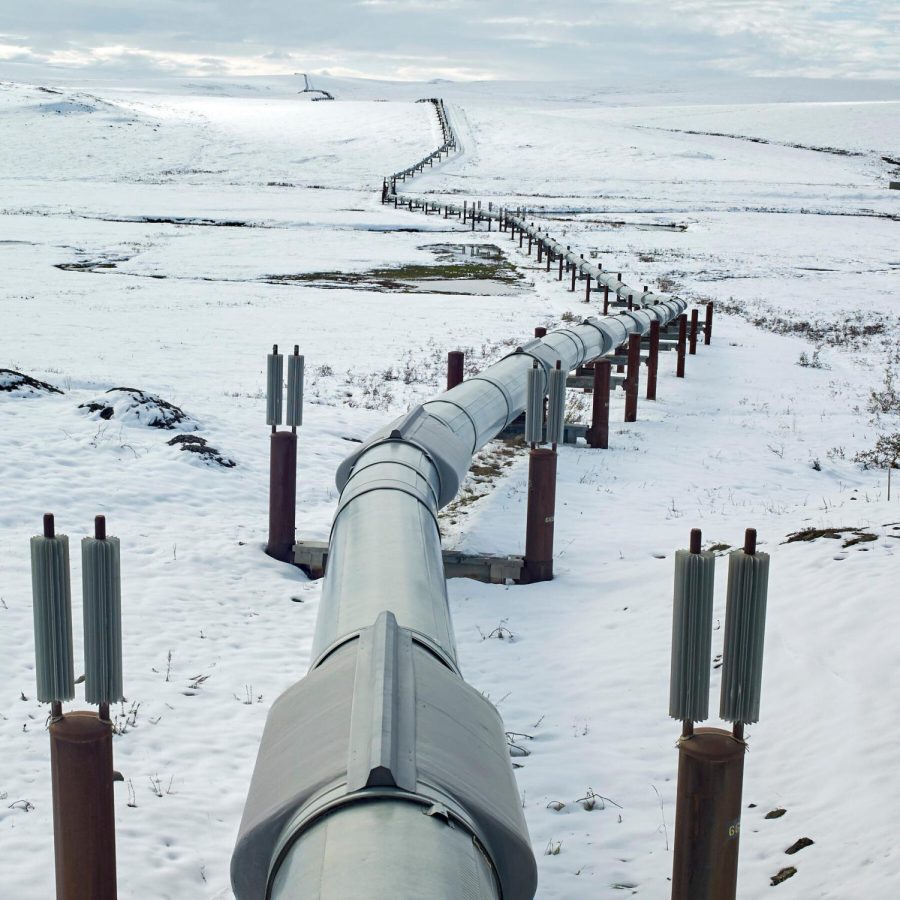Willow Project: A Race Against the Clock
March 31, 2023
On March 13, 2023, the Biden Administration passed the Willow Project to start construction on Alaska’s North Slope in the National Petroleum Reserve. The Willow Project is a massive and controversial oil development that has been in the works since 2020, when it was originally approved by the Trump Administration. Willow was the idea of ConocoPhillips, a Houston based energy company, which currently possesses two other oil drilling operations in Alaska’s National Petroleum Reserve. The passing of the project has sparked major debate on the impacts in which Willow will have on people, cities, and Earth. From the start, the approval process was arduous, due to an uprising of online activism, over one million letters sent in protest to the White House, and a change.org petition with over three million signatures. However, even though the odds seemed in favor of canceling the project, the Biden Administration states that they felt “tied down” since the act already existed and valid leases were obtained. The Biden Administration argues that they would not have been able to fully reject the project, or face legal repercussions, but were able to reduce the oil pads from five to three.
Construction was set to begin, but due to legal challenges from Earthjustice, an environmental law group, both sides must halt progress until a census is reached: a green light on the Project or an injunction (legal warning) to block the Project. Both sides are racing against the clock because the construction must be completed during the winter months, which for Alaska can lead to April, due to the fact that ice roads will help complete the infrastructure. If Earthjustice can secure an injunction, construction could be delayed for at least a year, and the oil would not be able to be used until construction is completed.
While the lawmakers argue that Willow will lead to revenue and fund sources such as education and health care, the negative impacts outweigh the positive ones. The Willow Project is estimated to release 9.2 million metric tons of carbon pollution a year, and over 239 million metric tons in its 30 year lifespan, leading to an even larger climate threat. The Willow Project alone would be adding an additional 70 million metric tons of carbon emissions from the United States, as well as an additional 60 million tons internationally. Another negative factor is that in addition to the fast-warming arctic, the project could destroy habitats for native species and alter migration patterns of animals. The project could also lead to oil spills, leaks, and blowouts, which leads to increased pollution.
The passing of the Willow Project prolongs the country’s reliance on fossil fuels, with no guarantee that technology will be able to stop the contribution to climate change. Citizens are worried about the health and environmental impacts that the Willow Project is placing on societies. Lastly, the Willow Project needed to obtain federal permits to work on federal lands, enraging citizens because part of President Biden’s campaign promise was to end new oil and gas drilling on public lands and waters.
The Willow Project will only continue to rapidly increase carbon emissions, therefore increasing the effects of climate change on the earth. If this Project continues, there will be serious repercussions, but by then it may be too late. Consider signing the petition at the bottom of this article to help slow the spread of carbon emissions and the lasting effects of climate change.
https://www.change.org/p/stop-the-willow-project-90614d72-92eb-414f-a9cd-c608cf247bbe



